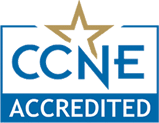Nursing



8-week terms allow for start dates throughout the year
Get hands-on practice during in-person immersive experiences that help prepare you for clinical rotations
This APRN track is accredited by the Commission on Collegiate Nursing Education1
Preparation to provide primary care to families and individuals of all ages
Skills to help prepare you to work in private practice, clinical environments, and special care units
Flexibility designed for working nurses with mobile-accessible learning and study tools
Hands-on, on-site clinical practice at a facility in your local area

Family Nurse Practitioners (FNPs) play an essential role in community healthcare, delivering primary care services to individuals of all ages. The American Association of Nurse Practitioners (AANP) reports more than half of nurse practitioners focus on family care.
WCU’s online MSN – FNP specialization offers a dynamic blend of online coursework and hands-on clinical practice. With an evidence-based curriculum and industry-current technology, WCU helps you advance your education and prepare for today’s evolving healthcare landscape.
Combine online flexibility with precepted clinical hours that give you real-world experience in managing both acute and chronic conditions.
Our MSN – FNP program is designed to help prepare you for national certification and open the door to roles in leadership, education, or advanced practice nursing.
Distance Education/Online
53 Credits
20 Months
5 Trimesters
Distance Education/Online
53 Credits
32 Months
8 Trimesters
| Course Number | Course Name | Total Credit Hours |
|---|---|---|
| Number | Name | Hours |
| MSNC 500 | Nursing Roles in Policy, Ethics, & Finance | 3 |
| MSNC 505 | Scholarship for Advanced Nursing Practice | 3 |
| MSNC 510 | Advanced Nursing Technologies & Collaborative Care | 3 |
| MSNC 515 | Health Promotion and Disease Management | 3 |
| Total Credit Hours: | 12 | |
| Course Number | Course Name | Total Credit Hours |
|---|---|---|
| Number | Name | Hours |
| MSNR 550 | Advanced Pathophysiology | 3 |
| MSNR 555 | Advanced Pharmacology | 3 |
| MSNR 560 | Advanced Health & Physical Assessment | 3 |
| MSNF 600 | Family Primary Care: Introduction to Advanced Practice | 2 |
| MSNF 605 | Family Primary Care: Clinical Reasoning & Differential Diagnosis | 3 |
| MSNF 610 | Adult Gerontology Primary Care: Health I | 2 |
| MSNF 610C | Adult Gerontology Primary Care: Practicum I | 2 |
| MSNF 620 | Adult Gerontology Primary Care: Health II | 2 |
| MSNF 620C | Adult Gerontology Primary Care: Practicum II | 2 |
| MSNF 630 | Women’s and Reproductive Health | 3 |
| MSNF 630C | Women’s and Reproductive Health Practicum | 2 |
| MSNF 640 | Pediatric & Adolescent Health | 3 |
| MSNF 640C | Pediatric & Adolescent Health Practicum | 2 |
| MSNF 650 | Family Primary Care: Intensive I | 2 |
| MSNF 650C | Family Primary Care: Residency I | 2 |
| MSNF 660 | Family Primary Care: Intensive II | 2 |
| MSNF 660C | Family Primary Care: Residency II | 2 |
| MSNF 680 | Family Primary Care: Transition to Advanced Practice | 1 |
| Total Credit Hours: | 41 | |
| Program Credit Distribution | ||
|---|---|---|
| Program Credit Dist. | ||
| Core Nursing Semester Credits: | 12 | |
| Family Nurse Practitioner Track Semester Credits: | 41 | |
| Total Program Semester Credits: | 53 | |
We know school is a substantial commitment. At WCU, we want to equip you with all the information you need to make the right decision for your future.
Our goal is to give you a clear understanding of MSN Family Nurse Practitioner online tuition costs so you can be well-informed as you navigate the application and enrollment process. To assist you in your decision, we provide a breakdown below of the MSN Family Nurse Practitioner track costs at West Coast University.
We offer several financial aid options — including scholarships, grants, and loan access — to help support you through your studies. For more information about your financial support options, visit our financial aid page.
Estimated Cost of Attendance is comprised of both direct costs and indirect costs, as outlined in the charts below. The purpose of the Cost of Attendance (COA) is to provide students and families with an estimated cost to attend West Coast University. The COA includes both direct and indirect cost estimates and are categorized as follows: (1) Direct costs are paid directly to West Coast University and are shown separately for each program; (2) Indirect costs are not paid to West Coast University and are estimates students may use to budget expenses they may incur while attending school. While actual indirect costs may vary, West Coast University estimates these amounts based on the number of months in an academic year and whether students will live with parents or off campus.
| Degree Type | Effective prior to Fall I 2026 | Effective Fall I 2026 |
| Total Program Credits | 53 | 53 |
| Program Length (Full-Time) | 5 trimesters | 5 trimesters |
| MSN Core(per credit x 18 credits; 12 credits effective Fall I 2024) | $700 | $721 |
| APRN Core(per credit cost x 35 credits; 41 credits effective Fall I 2024) | $785 | $850 |
| Total Tuition Cost | $41,610 | $43,502 |
| STRF1 | $0 | $0 |
| Technology Fee2 | $2,500 | $2,500 |
| Estimate for Program Supply Fees3 | $2,300 | $2,300 |
| Program Fee (Clinical)3 | $4,300 | $4,515 |
| Estimated Total Program Costs (Texas) | $50,710 | $52,817 |
| Estimated Total Program Costs (California) | $50,710 | $52,817 |
Indirect Costs
| 8 Month Academic Year5 | ||||
| Prior to Fall I 2025 | Starting Fall I 2025 | |||
| with parents | off campus | with parents | off campus | |
| Federal Student Loan Fees | $220 | $220 | $220 | $220 |
| Living Expenses (Food & Housing) | $2,496 | $8,328 | $2,616 | $8,728 |
| Transportation | $1,728 | $1,728 | $1,776 | $1,776 |
| Personal Expenses | $5,656 | $5,656 | $5,656 | $5,656 |
| Total | $10,268 | $16,380 | $11,492 | $17,660 |
1 Effective April 1, 2024, the Student Tuition Recovery Fund (STRF) assessment rate will be zero dollars and zero cents ($0.00) per one thousand dollars ($1,000) of institutional charges.
The State of California established the Student Tuition Recovery Fund (STRF) to relieve or mitigate economic loss suffered by a student in an educational program at a qualifying institution, who is or was a California resident while enrolled, or was enrolled in a residency program, if the student enrolled in the institution, prepaid tuition, and suffered an economic loss. Unless relieved of the obligation to do so, you must pay the state-imposed assessment for the STRF, or it must be paid on your behalf, if you are a student in an educational program, who is a California resident, or are enrolled in a residency program, and prepay all or part of your tuition.
You are not eligible for protection from the STRF and you are not required to pay the STRF assessment, if you are not a California resident, or are not enrolled in a residency program.
It is important that you keep copies of your enrollment agreement, financial aid documents, receipts, or any other information that documents the amount paid to the school. Questions regarding the STRF may be directed to the Bureau for Private Postsecondary Education, 1747 N. Market Blvd. Ste 225 Sacramento, CA 95834, (916) 431-6959 or (888) 370-7589.
To be eligible for STRF, you must be a California resident or enrolled in a residency program, prepaid tuition, paid or deemed to have paid the STRF assessment, and suffered an economic loss as a result of any of the following:
To qualify for STRF reimbursement, the application must be received within four (4) years from the date of the action or event that made the student eligible for recovery from STRF.
A student whose loan is revived by a loan holder or debt collector after a period of noncollection may, at any time, file a written application for recovery from STRF for the debt that would have otherwise been eligible for recovery. If it has been more than four (4) years since the action or event that made the student eligible, the student must have filed a written application for recovery within the original four (4) year period, unless the period has been extended by another act of law.
However, no claim can be paid to any student without a social security number or a taxpayer identification number.
2Technology Fee includes student technical support, Office 365, blended and online course delivery/learning management system, mobile app, student portal technology and access, and required electronic course materials/software.
3Supplies and licensure prep fees include a WCU identification card, background check, standardized patients, supplies, equipment for onsite intensives, and APRN predictor exams for APRN students. Supplies become student purchases once issued to students. Students who drop or have been dismissed after supplies have been issued will assume ownership for these items and will not be eligible for refunds. For details on all the supplies please contact the Bursar Office.
4 Program supplies include WCU identification card and background check.
5 The purpose of the Cost of Attendance (COA) is to provide students and families with an estimated cost to attend West Coast University. The COA includes both direct and indirect cost estimates. Direct costs are paid directly to West Coast University and are shown separately for each program. Indirect costs are not paid to West Coast University and are estimates students may use to budget expenses they may incur while attending school. While actual indirect costs may vary, West Coast University estimates these amounts based on the number of months in an academic year and whether students will live with parents or off campus.
| Degree Type | Effective prior to Fall I 2026 | Effective Fall I 2026 |
| Total Program Credits | 53 | 53 |
| Program Length (Full-Time) | 8 trimesters | 8 trimesters |
| MSN Core(per credit x 18 credits; 12 credits effective Fall I 2024) | $700 | $721 |
| APRN Core(per credit cost x 35 credits; 41 credits effective Fall I 2024) | $810 | $850 |
| Total Tuition Cost | $41,610 | $43,502 |
| STRF1 | $0 | $0 |
| Technology Fee2 | $4,300 | $4,515 |
| Estimate for Program Supply Fees3 | $2,300 | $2,300 |
| Program Fee (Clinical)3 | $4,300 | $4,300 |
| Estimated Total Program Costs (Texas) | $52,210 | $54,317 |
| Estimated Total Program Costs (California) | $52,210 | $54,317 |
Indirect Costs
| 8 Month Academic Year5 | ||||
| Prior to Fall I 2026 | Starting Fall I 2026 | |||
| with parents | off campus | with parents | off campus | |
| Federal Student Loan Fees | $220 | $220 | $220 | $220 |
| Living Expenses (Food & Housing) | $2,616 | $8,728 | $2,904 | $9,072 |
| Transportation | $1,776 | $1,776 | $1,920 | $1,920 |
| Personal Expenses | $5,656 | $5,656 | $6,448 | $6,448 |
| Total | $10,268 | $16,380 | $11,492 | $17,660 |
1 Effective April 1, 2024, the Student Tuition Recovery Fund (STRF) assessment rate will be zero dollars and zero cents ($0.00) per one thousand dollars ($1,000) of institutional charges.
The State of California established the Student Tuition Recovery Fund (STRF) to relieve or mitigate economic loss suffered by a student in an educational program at a qualifying institution, who is or was a California resident while enrolled, or was enrolled in a residency program, if the student enrolled in the institution, prepaid tuition, and suffered an economic loss. Unless relieved of the obligation to do so, you must pay the state-imposed assessment for the STRF, or it must be paid on your behalf, if you are a student in an educational program, who is a California resident, or are enrolled in a residency program, and prepay all or part of your tuition.
You are not eligible for protection from the STRF and you are not required to pay the STRF assessment, if you are not a California resident, or are not enrolled in a residency program.
It is important that you keep copies of your enrollment agreement, financial aid documents, receipts, or any other information that documents the amount paid to the school. Questions regarding the STRF may be directed to the Bureau for Private Postsecondary Education, 1747 N. Market Blvd. Ste 225 Sacramento, CA 95834, (916) 431-6959 or (888) 370-7589.
To be eligible for STRF, you must be a California resident or enrolled in a residency program, prepaid tuition, paid or deemed to have paid the STRF assessment, and suffered an economic loss as a result of any of the following:
To qualify for STRF reimbursement, the application must be received within four (4) years from the date of the action or event that made the student eligible for recovery from STRF.
A student whose loan is revived by a loan holder or debt collector after a period of noncollection may, at any time, file a written application for recovery from STRF for the debt that would have otherwise been eligible for recovery. If it has been more than four (4) years since the action or event that made the student eligible, the student must have filed a written application for recovery within the original four (4) year period, unless the period has been extended by another act of law.
However, no claim can be paid to any student without a social security number or a taxpayer identification number.
2Technology Fee includes student technical support, Office 365, blended and online course delivery/learning management system, mobile app, student portal technology and access, and required electronic course materials/software.
3Supplies and licensure prep fees include a WCU identification card, background check, standardized patients, supplies, equipment for onsite intensives, and APRN predictor exams for APRN students. Supplies become student purchases once issued to students. Students who drop or have been dismissed after supplies have been issued will assume ownership for these items and will not be eligible for refunds. For details on all the supplies please contact the Bursar Office.
4 Program supplies include WCU identification card and background check.
5 The purpose of the Cost of Attendance (COA) is to provide students and families with an estimated cost to attend West Coast University. The COA includes both direct and indirect cost estimates. Direct costs are paid directly to West Coast University and are shown separately for each program. Indirect costs are not paid to West Coast University and are estimates students may use to budget expenses they may incur while attending school. While actual indirect costs may vary, West Coast University estimates these amounts based on the number of months in an academic year and whether students will live with parents or off campus.
Applicants for the program must meet the following requirements (MSN All Track Option):
*Applicants submitting non-U.S. or non-English transcripts should refer to the International Admissions section of the catalog.
In addition to the admissions requirements above, applicants to the Master of Science in Nursing – Advanced Practice Registered Nurse tracks must also meet the following admissions requirements:
For additional requirements, including admission information for CA-based APRN students and international students, visit our catalog.
New terms begin, on average, every eight weeks. The number of trimesters needed depends on the program and pace selected for the FNP track. For the most updated start-to-completion schedule, view the Academic Calendar.

At WCU, we’re with you every step of the way. Our Clinical Placements team stands ready to help you identify a preceptor and clinical site to complete your clinical practicum. The team leverages connections with numerous healthcare partners to help you find a placement that’s the right fit for you.
You’ll have someone to hop on a coaching call with whenever you’re in need of some advice on improving your clinical practice experience. Our team has your back!
At WCU, our Career Services team is always ready to help our FNP graduates through workshops, career planning, job search resources, and other forms of professional development. They’re committed to assisting students and alumni as they navigate their search for job opportunities that are the right fit.2
The support we offer goes beyond preparing you for the licensure exam. We also help you develop a job search strategy. This includes helping you find open roles, providing interview coaching, offering resume tips, are more.
Sally V.
BSN ’14, MSN-FNP ’21
West Coast University
A total of 540 precepted clinical hours are required to earn your MSN-FNP degree. Clinical placements are handled by our Clinical Placement team, who have extensive experience in connecting students with reputable organizations that align with their interests in the field.
Yes! Our Career Services team works with both current students and alumni. They’re standing by to support you when it comes to career advancement and your search for a job.
Currently, on-site intensives are held on campus at our Orange County location in California and our Texas location. Travel costs are not included in tuition and fees.
Our nursing programs deliver a student-centric, evidence-based education that includes topics relevant to an evolving healthcare environment. As an FNP student, you can expect in-depth learning around best practices in the delivery of primary care.
We can evaluate your previous coursework for transfer credit. WCU may accept credit for previous courses taken from other academic institutions as long as the course meets the requirements of the specific academic program for which it is being considered and a grade of B (80%) or better was achieved for a graduate course as documented on official transcripts. Each program maintains its own transfer credit requirements.
Time-to-completion will vary depending on which pace you choose:
The roles of a family nurse practitioner will vary depending on the facility they work for. WCU’s online FNP program helps prepare graduates for positions in a variety of fields including (but not limited to) primary and preventative health, community health, nursing management, and academic faculty roles.
FNPs work wherever nurse practitioners are needed. According to the Bureau of Labor Statistics, the most common settings for NPs include:
Our program includes clinical hours for practical experience. When it comes to selecting the right facility and preceptor, WCU has a dedicated clinical team to help you find a placement for clinical training that aligns with the requirements of your program.
Our Family Nurse Practitioner program students will have to complete two on-site intensives (OSIs), which help prepare them for APRN clinical rotations and practice. In addition to providing valuable hands-on experience, OSIs give students the chance to learn unique skills that are relevant to their field of study, and also to get instructor feedback.

The baccalaureate degree program in nursing, master’s degree program in nursing, Doctor of Nursing Practice program, and post-graduate APRN certificate program at West Coast University are accredited by the Commission on Collegiate Nursing Education 655 K Street, Suite 750, Washington DC 20001, (202) 877-6791 (www.ccneaccreditation.org).
1 American Association of Nurse Practitioners, “NP Fact Sheet,” Updated April 2022
2 WCU provides career guidance and assistance but cannot guarantee employment.
3 Bureau of Labor Statistics, U.S. Department of Labor, Occupational Outlook Handbook, Nurse Anesthetists, Nurse Midwives, and Nurse Practitioners, “Work Environment,” Accessed May 31, 2023
Financial aid and scholarships are available for those who qualify.
Students enrolled through the Orange County campus must complete their OSI’s in California. Students enrolled through the Texas campus must complete them in Texas. Travel costs are not included in tuition and fees, and students are responsible for arranging transportation.
WCU Distance education programs are delivered out of the California and Texas campuses and may not be available to residents in all states.
Practice Experience is required in order to graduate from the RN to BSN, RN to MSN, MSN, DNP degree and Post-Master’s certificate programs.